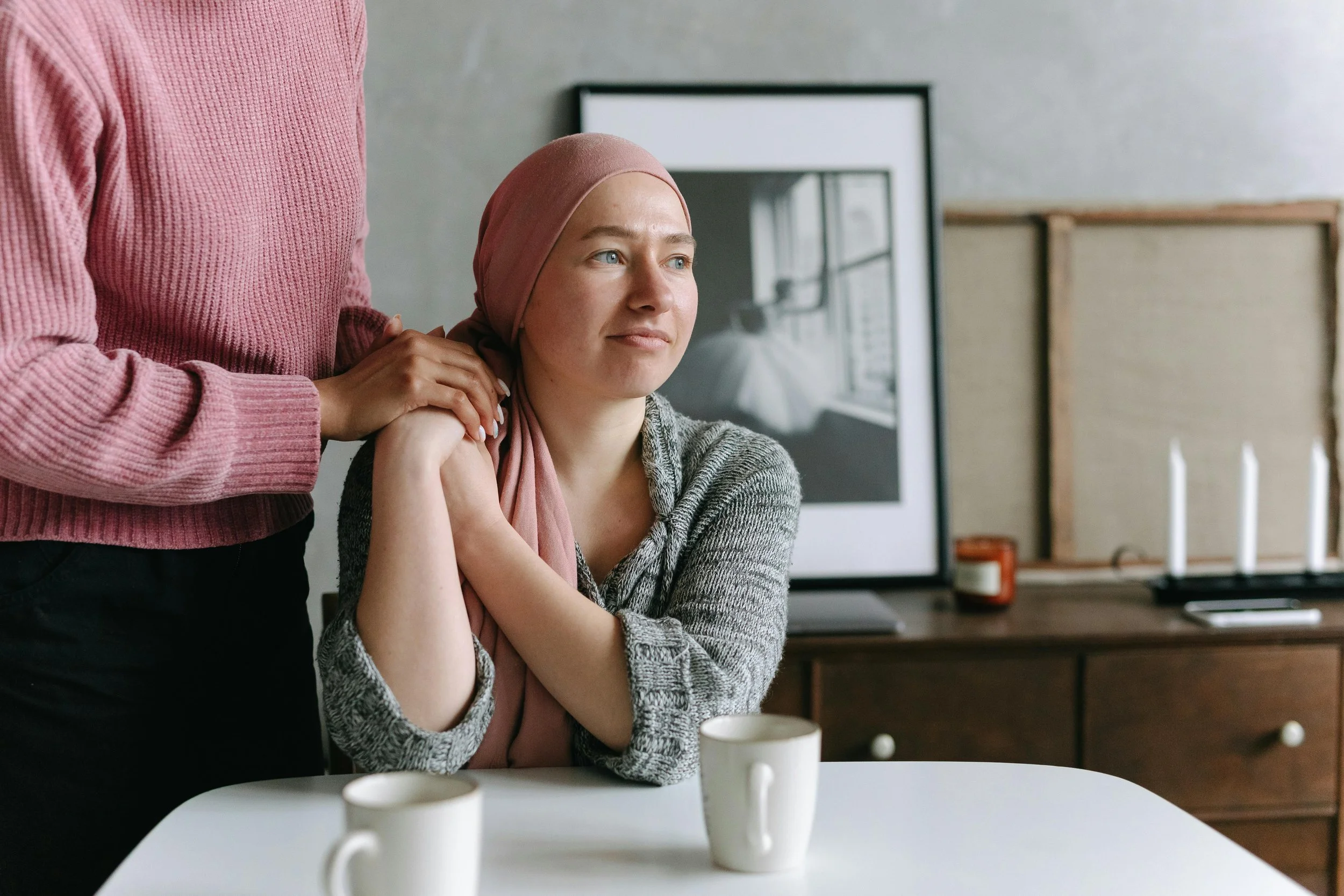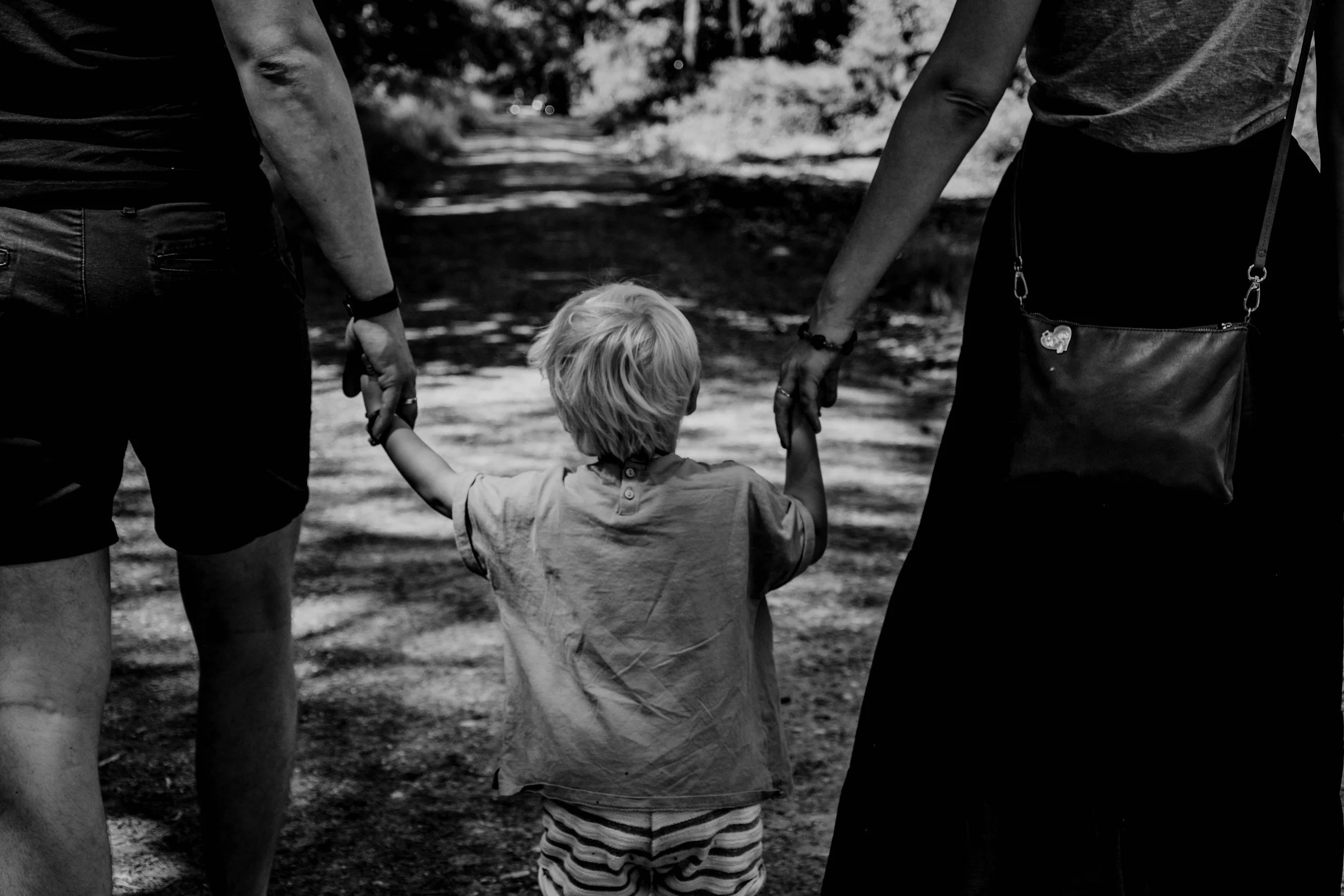When someone you love is diagnosed with cancer, life can seem to shift in an instant. Conversations that once felt ordinary are suddenly filled with uncertainty, and everyday worries are replaced by bigger, heavier questions. It is common to feel frightened, helpless or unsure what to say. You may want to be strong and supportive, yet also feel anxious, tearful or even angry. Supporting someone with cancer is an act of deep care, but it can also be emotionally demanding. This post explores how to stay connected, offer meaningful support, and look after your own wellbeing at the same time.
The shock of diagnosis affects everyone
Cancer does not only happen to one person. It ripples through families, relationships and friendships. In the first days and weeks after diagnosis, people often describe a sense of disbelief or numbness. You may be trying to take in medical information while also managing your own emotional reactions. It is completely natural to feel overwhelmed. There is no perfect way to respond, and each person in the family may cope differently. Some focus on practical tasks, others want to talk about everything, and some retreat for a while to process what is happening. Recognising and respecting these differences can help avoid misunderstandings at a time when emotions already run high.
What your loved one might need
Every person’s experience of cancer is unique. Some want to talk openly about what they are going through, while others need quiet space or normal conversation that does not always revolve around illness. Rather than guessing, it can help to ask directly: “What feels most helpful for you right now?” or “Would you like to talk about it or take a break from it today?” These gentle questions give your loved one permission to express their needs and allow you to adapt as things change.
Support is not always about having the right words. Often it is about presence, listening without rushing to reassure or fix things. Simply sitting together, making a cup of tea, or doing something ordinary can provide enormous comfort. When someone is facing frightening uncertainty, your calm and consistent presence helps remind them they are not alone.
Balancing practical and emotional care
In the early stages of treatment, there may be appointments, medication schedules and changes to routines. Helping with these tasks can be invaluable, but remember that emotional care matters just as much. Encouraging your loved one to rest, eat, and talk about how they are coping can make a real difference. You might gently suggest writing down questions before medical appointments or helping them track symptoms if that feels useful.
At the same time, it is important not to take on too much. Cancer can create a strong urge to protect or fix things for the person you love, but it is not possible to control the illness or its outcome. Setting realistic expectations about what you can and cannot do will help both of you feel more balanced. Sometimes the kindest thing you can offer is honesty, presence, and care rather than constant action.
The emotional toll of caring
Many relatives and partners describe feeling guilty for struggling themselves. You might think, “I’m not the one with cancer, I should be fine.” But your emotional system is under significant pressure too. Watching someone you care about suffer can trigger anxiety, sadness and helplessness. Therapy or support groups for family members can be a safe space to express those feelings and learn coping tools. Even a few sessions can help you understand your stress responses and build resilience for the months ahead.
Compassion-focused therapy principles can be especially helpful. They encourage you to treat yourself with the same understanding you offer your loved one, recognising that you are also doing your best in an extremely challenging situation. Taking care of yourself is not selfish, it is essential if you want to sustain your support over time.
When the prognosis is difficult
Hearing that someone you love may not recover or that treatment options are limited can feel unbearable. People often swing between hope and despair, trying to protect each other from the truth while longing for honesty. There is no single right way to manage these conversations, but open communication tends to help everyone cope better in the long run. If words fail, simply acknowledging, “I don’t know what to say, but I’m here with you,” can be enough.
Therapy can also help families navigate this stage. It provides a space to think about how to talk together, what to share with children or friends, and how to make time for connection even when things are painful. The goal is not to eliminate sadness but to make space for meaning, love and togetherness in the midst of uncertainty.
Looking after yourself
It can feel difficult to prioritise your own wellbeing when someone else is ill, but maintaining small moments of care for yourself will help you stay steady. Try to rest, eat regularly, and maintain supportive social contact beyond the cancer setting. Brief walks, listening to music or time in nature can help calm your nervous system. It may feel strange to enjoy moments of peace, but this does not mean you care any less. It simply means you are allowing yourself to recover between emotional demands.
Holding on to connection
Even in the most difficult circumstances, connection can be healing. Whether through quiet companionship, shared humour, or honest conversations, maintaining closeness can bring strength to both of you. Remember that your presence is enough, and that caring for someone you love includes caring for yourself too. Support, compassion and balance are what sustain both people through the uncertainty of illness.




